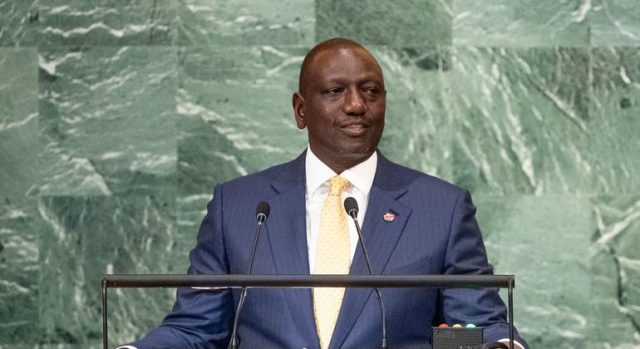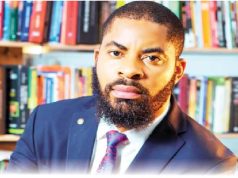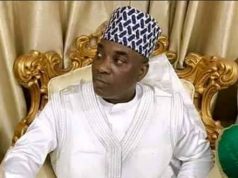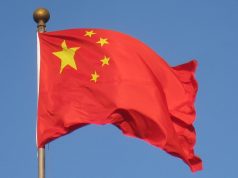IKENNA EMEWU
At the world press conference for the G20 Summit 2016 in Hangzhou, China, I raised my hand to ask Secretary General of the UN, Ban Ki-moon, a question on when the United Nations would deem it fit to give Africa at least a permanent seat at the Security Council, 71 years into its existence then.
At a point, I brought down my hand before being recognised. I felt I would not be wise to pose that question to the current UN head from South Korea when he actually succeeded an African, Kofi Annan, who also succeeded an African Boutros Boutros Ghali. I asked myself why I should worry someone else over what Africans refused to do for Africa.
But if there is something that galls me about the UN, it is the non-inclusion of Africa in the top decision-making body of the world platform. Per bloc and judging from the one-member-one-vote position, Africa, with 54 member states, is the continent with the largest membership at the UN.
At the UN, numbers don’t count. Even when the leaders and owners of the UN claim that democracy is a game of numbers where the majority have their way, the UN General Assembly (UNGA), made up of 193 members is irrelevant. It is five countries that make decisions for the rest.
In international law, resolutions of the UNGA are not declaratory of international law, but those of the 5 members of the UN Security Council (UNSC) are automatically law and operable. Therefore, any voting by the UNGA ends as a resolution, most of which are not implementable, and when not implemented, there is nothing anybody can do about that.
With the composition of the UNSC, the Global South bloc is completely excluded from the decision-making of the UN. You can conclude that the UN is not a democratic body, and its claims of being champions of democracy is false and deceptive.
I have utilised all the little opportunities that came my way in the past two years to speak up on the injustice of excluding Africa from the UNSC.
I spoke in Beijing last year, July at the China Centre for Contemporary World Studies (CCCWS) Summit, and my topic was the same – why China and the rest of the Global South should align and support Africa to have at least a single UNSC permanent seat slot.
At the Lagos Forum in April this year, I was presented another opportunity at the Nigerian Institute of International Affairs (NIIA) at the event co-hosted by the Chinese Consulate, Africa China Economy Magazine, NIIA, and the Institute of African Studies of Zhejiang Normal University, China where I raised the same issue of the equitable remedy that would be if Africa gets at least a single UNSC permanent seat, and by extension, slots for the Global South countries.
In November, another opportunity to speak will arise, having submitted my paper for presentation at an expected summit in Johannesburg. My topic at the planned discussion is the same issue.
I was, therefore, elated to listen to President William Ruto of Kenya, pointedly tell the UNGA at the ongoing assembly for the 80th anniversary of the world body how unfair it is to ignore Africa at the UNSC.
Ruto challenged the UN to have a prick of the conscience and do the needful.
He slammed: “ Excellencies, as we mark the 80th anniversary of the United Nations, Africa also marks 20 years since the Ezulwini Consensus and the Sirte Declaration, the two historic milestones that established the Common African Position on UN Security Council reform. For two decades, Africa has spoken in one voice, demanding justice, equity, and representation in the highest organ of global governance.
This demand, however, continues to be ignored, deferred, or endlessly debated to the detriment of both Africa and the legitimacy of the United Nations itself. You cannot claim to be the United Nations while disregarding the voice of 54 African countries, which are no longer willing to wait on the margins of global governance, while decisions about peace, security, and development are made without our understanding, perspectives, and voice. Africa’s exclusion is not only unacceptable, unfair, and grossly unjust; it also undermines the very credibility of the United Nations.
Africa dominates most of the Security Council’s agenda, provides some of the largest contingents to UN peacekeeping, and bears the heaviest costs. Yet we remain the only continent without a permanent seat at the table, where decisions about our destiny are made. Africa deserves two permanent seats with full rights, including the veto, and two additional non-permanent seats on the UN Security Council.
The world must understand that reforming the Security Council is not a favour to Africa; it is a necessity for the UN’s own survival. If the UN is to remain relevant in this Century, it must reflect today’s realities, not the post-war power arrangements of 1945.
Madam President, despite the stated and evident weaknesses of the United Nations, it remains humanity’s best chance at global governance. No other institution has the universal legitimacy or convening power of the UN.”
Unlike Cyril Ramaphosa of South Africa, who ignored all the nagging pains of Africa and made a nonsense of Africa’s plight and preferred to discuss Palestine, Gaza, and Israel, William Ruto spoke for me and the entire continent. I am proud of him. He demonstrated staunch boldness and the courage to confront a challenge that the UN has deliberately acted like it doesn’t exist, because to the body, Africa is just a number, an inconsequential space filler, and a cipher worth nothing. African leaders should just attend UN events, sign the dotted lines for attendance, clap for the powers that use them to feather their egos’ nest, and walk back to Africa, wringing their cold hands helplessly over their heavy burden of neglect.
With the achievements of the UN, the global body can’t boast of the particular support or regard it has given to Africa. The owners of the body watched without a whimper when their ilk deprecated Africa and the world with colonisation without seeing anything bad in the atrocious inhumanity Europe wrought in Africa, Asia, Oceania, etc. But they discussed Israel and the Middle East. After Nikita Khrushchev of the then USSR started blackmailing them to speak up against colonization in Africa, it grudgingly issued the UNGA Declaration on the Granting of Independence to Colonial Countries and Peoples (UNGA Resolution 1514, December 14, 1960). This window dressing Resolution without enforcement effect came after 17 African countries had fought in the same year for their freedom without UN assistance. Confirming that it was mere talk, some African countries still didn’t get any freedom from colonization until 1990 when Namibia gained Independence from Apartheid South Africa.
While the UNGA Resolution lacks enforcement, the UNSC, which has the power to enforce rules, watched askance. It was not their business how Africa fared.
William Ruto would not understand the ripples his boldness in standing before the world and speaking up against the injustices in Africa would create. Africa’s predicament has been partly due to the lax and timid nature of its diplomatic engagement. Ruto endeared himself to the true Africans, the bold Africans, and the real African, not those that ignore the blood fair going on in Somalia, the endless emasculation of Sahel West Africa by Emanuel Macron’s France, the hunger at the Horn of Africa, the genocide of the Tigray people of Ethiopia, the carnage in Sudan and South Sudan and the terrorism all over Africa to seek inchoate populism and discuss the inane.
Ruto’s speech addressed nearly all the challenges facing Africa and the UN’s shortcomings, despite Africa’s active role in supporting the UN in various ways, often without commensurate compensation.
Thank you, Ruto, for speaking for me and for Africa when it matters most.










